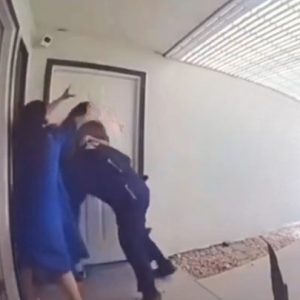The courtroom was tense as young Isla sat with her service dog, Moose, by her side. Small and fragile-looking, she found strength in his steady presence. When she whispered, “I’m not making it up. Moose knows. He always knows,” the room fell silent. It wasn’t just a statement—it was proof of the deep, unspoken bond between them.
Judge Dawson acknowledged Isla’s courage and the critical role Moose played in her emotional stability. She reviewed records showing Moose’s specialized training to sense Isla’s anxiety and respond to her subtle signals. Experts confirmed he was more than a companion—he was a lifeline.
When the judge ruled that Isla would remain with her foster parents while custody claims were reviewed, relief swept the room. The decision emphasized the importance of stability and the healing environment Isla had found.
For Isla, the day was more than a legal victory. It was validation—her voice had been heard, her bond with Moose respected, and her needs recognized. Supported by her foster family and guided by Moose, she left the courthouse not just protected, but empowered.
This case highlights how service animals can give traumatized children a voice, how foster care stability matters, and how courts must look beyond procedure to prioritize a child’s well-being. Isla’s story is one of courage, resilience, and the extraordinary ways healing can take shape.





